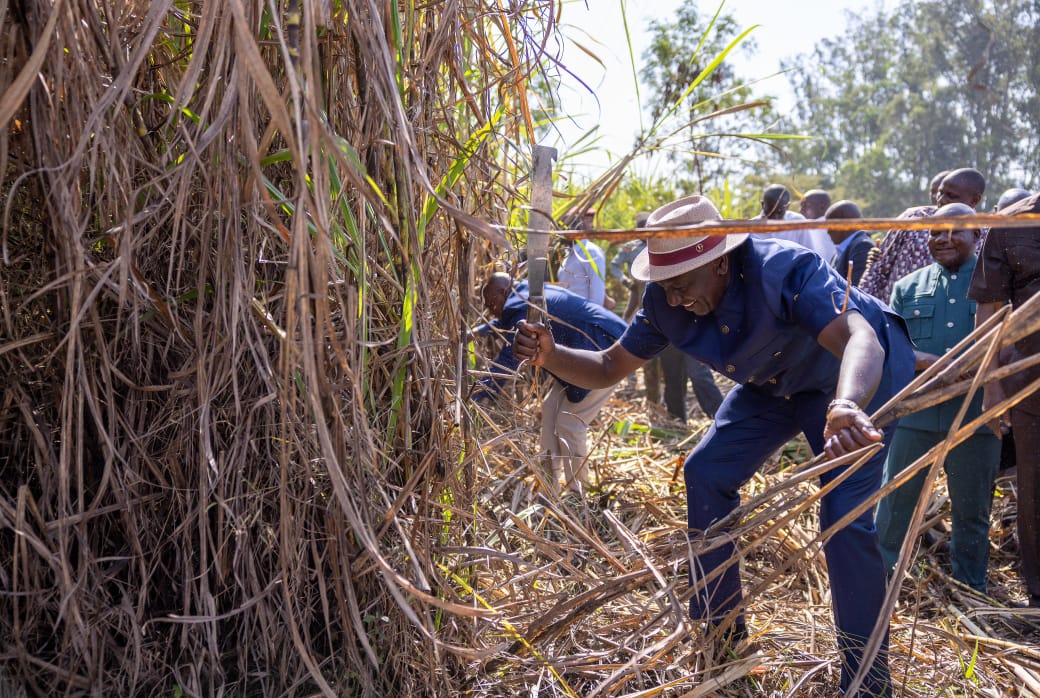Sugar milling halts in Western Kenya as factories shut down over cane shortage

The affected factories include Mumias, Butali, and West Kenya in Kakamega County, Nzoia and Naitiri in Bungoma, as well as Busia Sugar Industry and Olepito in Busia County.
Sugar milling in western Kenya is set to grind to a halt for three months starting July 14, after the Kenya Sugar Board (KSB) ordered seven factories to suspend operations over a severe shortage of mature sugarcane.
The affected factories include Mumias, Butali, and West Kenya in Kakamega County, Nzoia and Naitiri in Bungoma, as well as Busia Sugar Industry and Olepito in Busia County.
More To Read
- Tough week for Kagwe as MPs demand lease documents, tender records in sugar mill probe
- CS Mbadi defends Treasury over unequal VAT policy on tea, sugarcane
- Boost for farmers as sugarcane prices raised to Sh5,500 per tonne
- Kenya Sugar Board threatens to cancel leases for investors who fail to meet guidelines
- Auditor General warns President Ruto's sugar loan relief could hurt farmers
- Government reviews sugarcane prices upwards after uproar from farmers
In a notice to the millers, KSB acting chief executive Jude Chesire said the decision followed a consultative meeting held at the Sarova Imperial Hotel in Kisumu on July 4, where stakeholders confirmed that both lower and upper western sugarcane zones lacked enough mature cane to sustain milling.
“During the most recent meeting held at the Sarova Imperial Hotel in Kisumu on Friday, July 4, 2025, it was established that both the lower and upper western sugarcane catchment areas had a severe shortage of mature cane,” Chesire said.
“It was, therefore, resolved that milling operations in the western region be temporarily stopped to allow cane to mature.”
The board raised concern that limited cane development in the region had left factories competing for immature crops, which not only deliver low sugar yields but also cause farmers to suffer financial losses.
“This has led to the harvesting and subsequent milling of immature sugarcane. Consequently, farmers are incurring losses due to lower yields associated with immature harvesting,” Chesire said.
Cane harvesting before maturity has become increasingly common, with factories crushing crops as young as 10 months old, well below the standard 16 to 18 months required for optimum sucrose levels.
The regulator linked this trend to aggressive cane poaching by millers, each struggling to meet their daily crushing capacity in the face of dwindling crop supply.
The temporary closure, the board says, will give the crop time to reach the desired maturity and help stabilise the sector, which has been rocked by poor planning and strained supply chains.
Millers are expected to remain closed until mid-October, when a fresh review will be conducted based on crop development progress across the region.
Top Stories Today













































